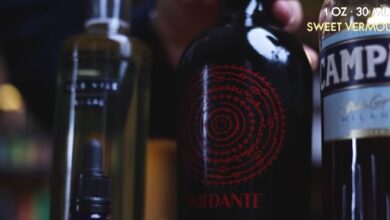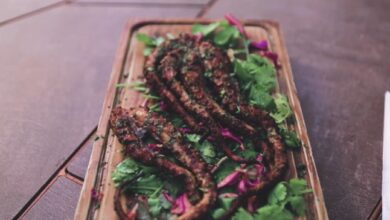Is Butter Halal
Butter, a staple in many kitchens around the world, is typically made from milk or cream. However, when it comes to determining whether butter is halal (permissible under Islamic dietary laws), there are several factors to consider. This article will explore the intricacies of butter production, potential ingredients that might affect its halal status, and how Muslims can ensure they are consuming halal butter.
Introduction
Butter has been a beloved ingredient for centuries, enhancing the flavor and texture of countless dishes. Its rich and creamy consistency makes it a favorite for baking, cooking, and spreading. For Muslims who follow halal dietary guidelines, it’s crucial to ensure that the butter they consume meets these standards. This involves understanding the ingredients and production processes that can render butter non-halal. By the end of this article, you will have a comprehensive understanding of what makes butter halal, the potential non-halal components it might contain, and where to buy halal butter.
What Makes Butter Halal?

Basic Ingredients and Halal Compliance
At its core, butter is made from milk or cream. If the milk comes from a cow or goat that has been slaughtered according to Islamic guidelines, the butter is generally considered halal. However, commercial butter production can involve additional ingredients and processes that might compromise its halal status.
Non-Halal Ingredients
Several ingredients commonly used in butter production can affect its halal status:
- Gelatin: Often added to stabilize and thicken butter, gelatin can be derived from pigs (pork gelatin) or non-halal slaughtered animals, making the butter non-halal.
- Whey Butter: This is produced from whey, a byproduct of cheese-making, which might use animal-derived enzymes like rennet. If these enzymes come from animals not slaughtered according to halal guidelines, the butter is not halal.
- Lard: Some low-fat butters use lard, which is derived from pigs, making it non-halal.
- Alcohol: Used in flavoring, especially in unsalted butter, alcohol traces must not remain in the final product for it to be halal.
Identifying Halal Butter
Certification and Labels
To ensure butter is halal, look for certification from reputable halal authorities. This certification confirms that the product adheres to Islamic dietary laws. Additionally, checking ingredient lists for any non-halal components is essential.
Homemade Halal Butter
Making butter at home can be a sure way to guarantee its halal status. By using milk or cream from halal sources, you can control the entire process, ensuring no non-halal ingredients are included.
Where to Buy Halal Butter
Halal butter is available in specialty stores, halal butcher shops, and online retailers. Brands with halal certification labels can also be found in major supermarkets.

Frequently Asked Questions
Halal Butter in Culinary Applications
Halal butter is versatile and can be used in various dishes, just like regular butter:
- Pastries: Adds richness and flakiness.
- Sauces: Provides a creamy base.
- Spreads: Enhances the flavor of bread and crackers.
- Cooking: Ideal for sautéing, frying, and baking.
Nutritional Benefits
Halal butter is not only a compliant food choice but also nutritious, providing essential nutrients like calcium, vitamin A, and vitamin E, with generally less saturated fat and cholesterol compared to some commercial butters.
F.A.Q.’s
What is halal butter?
Halal butter is made from milk or cream derived from animals slaughtered according to Islamic dietary laws and does not contain any non-halal ingredients or additives.
How can I ensure the butter I buy is halal?
Look for halal certification from reputable authorities and check the ingredient list for any non-halal components such as pork gelatin, lard, or alcohol.
Does halal butter taste different from regular butter?
No, halal butter does not taste different from regular butter. The production process and ingredients are similar, ensuring the same rich and creamy texture.
Can I find halal butter in regular supermarkets?
Yes, many supermarkets carry halal-certified butter. Check the dairy section or look for specific halal sections within the store.
Why is gelatin a concern in butter production?
Gelatin is often used to stabilize butter. If it is derived from pigs or animals not slaughtered according to halal guidelines, the butter is not halal.
Is homemade butter always halal?
Homemade butter can be halal if made with milk or cream from halal sources and without any non-halal additives.
Can whey butter be halal?
Whey butter can be halal if the whey used is derived from halal sources and does not involve non-halal enzymes.
Are there any specific brands known for halal butter?
Several brands offer halal-certified butter. Look for certification labels from recognized halal authorities.
What should I avoid in the ingredients list to ensure butter is halal?
Avoid butter containing gelatin, lard, or any form of alcohol.
Can I use halal butter in all my cooking?
Yes, halal butter can be used in any recipe that calls for butter, making it a versatile and compliant choice for cooking and baking.
Is salted butter more likely to be halal than unsalted butter?
Salted butter is less likely to contain non-halal flavoring agents like those found in unsalted butter. However, it is always best to check the label and certification.
How does halal certification work for butter?
Halal certification involves a thorough inspection of the production process, ingredients, and handling practices to ensure compliance with Islamic dietary laws.
What are the health benefits of halal butter?
Halal butter provides essential nutrients and generally contains less saturated fat and cholesterol than some commercial butters.
Where can I find halal butter online?
Halal butter can be purchased from various online retailers specializing in halal products. Check reputable sites with halal certification.
How can I contact halal certification bodies for more information?
Most halal certification bodies have contact information on their websites. Reach out to them for detailed inquiries about halal butter.
Are there different types of halal butter?
Halal butter can come in various forms, including salted, unsalted, cultured, and clarified (ghee). All types can be halal if made according to the guidelines.
Conclusion
Butter can be a halal ingredient if it adheres to specific guidelines. By being aware of the ingredients and production methods, Muslims can enjoy butter in their diet without compromising their religious beliefs. Always look for halal certification and thoroughly check the ingredients list when purchasing butter.
Read also: Boiling Crab Nutrition Facts





